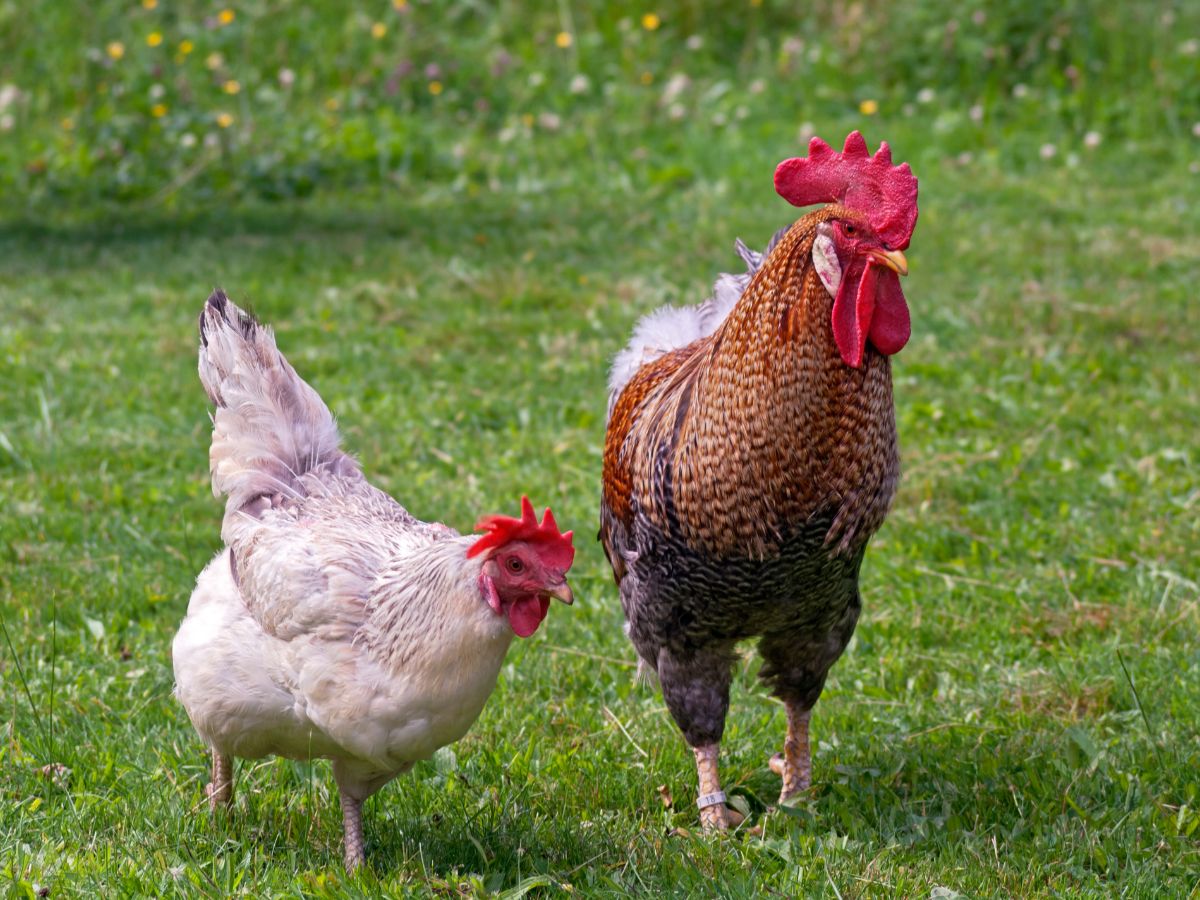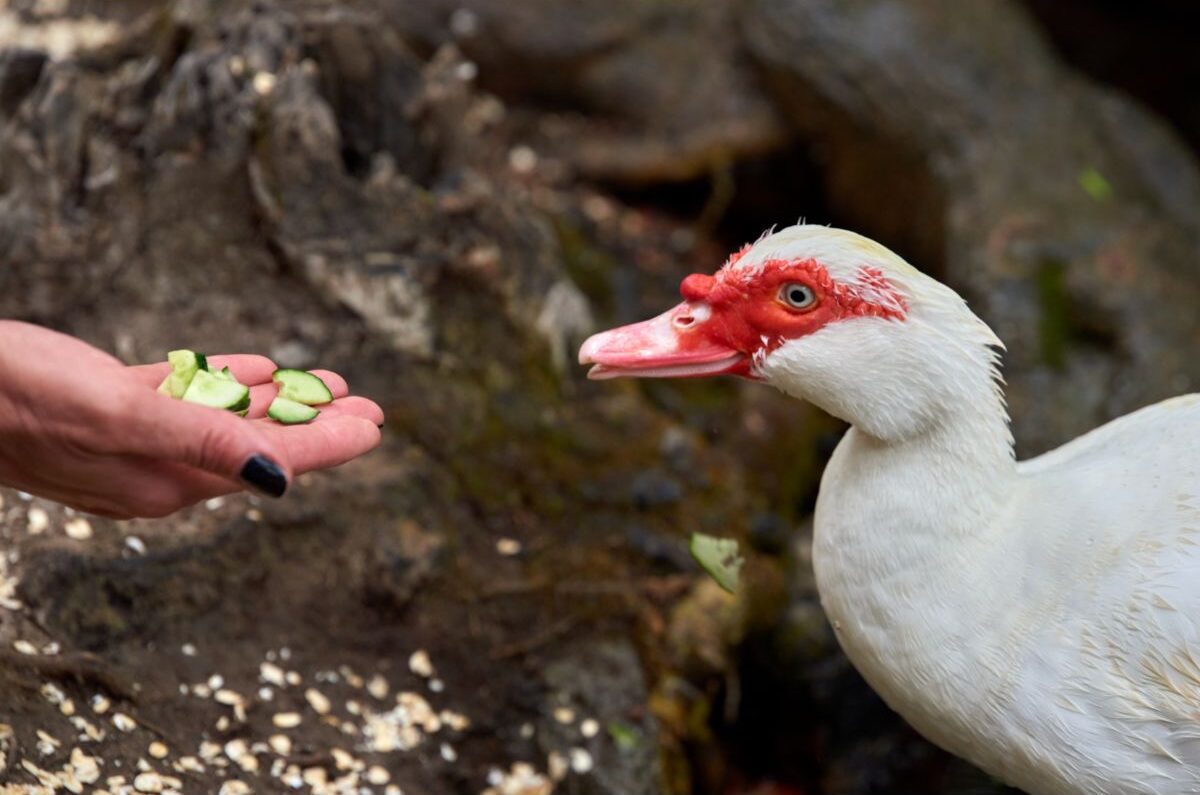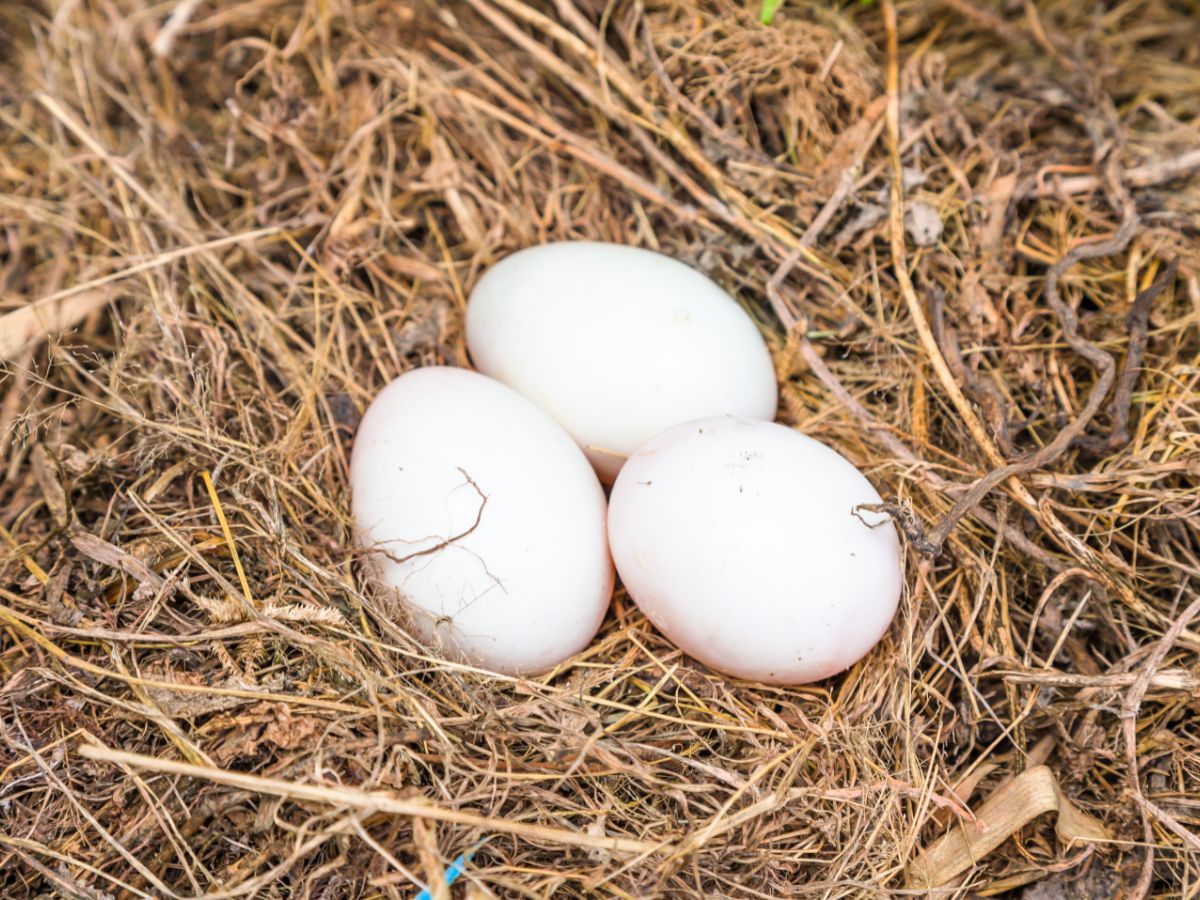Raising chickens is hard work but a wonderful experience. Whether raising them to lay eggs or as pets, a lot goes into keeping chickens. Like many other animals, chickens have their own quirks, and keeping them can be very rewarding. However, if kept as pets or to lay eggs, an important question is, how old do chickens get?
Chickens generally live between 3 and 7 years, but it is not unheard of for them to live up to 12 years. Some breeds of chickens, like the Bantam breed, live longer than others. The life expectancy of chickens is influenced by factors like their health, living conditions, predators, and genetics.
There are two main groups of chickens, namely the heritage and hybrid. The heritage group of chickens is raised naturally compared to hybrid breeds that are raised to fulfill a specific purpose, such as egg laying. As a result, heritage breeds live longer and are less prone to disease. On the other hand, hybrid breeds grow quickly. Still, they have a shorter lifespan because they are used in the commercial chicken industry.
Contents
How Long Do Chickens Live For?
Life expectancy of various chickens:
| Heritage group of chickens | depending on chicken breed 5 to 10 years |
| Laying hens | mostly 1,5 years, maximum 3 years until slaughter |
| Hybrid chicken | mostly 3 to 4 years |
| Broiler chicken | 1 to 2 months until slaughter |
Raising chickens is becoming more popular as people shift towards sustainable homes, organic gardens, and fresh produce. As a result, raising chickens is also on the rise, not only to be kept as pets but for laying eggs.
When raising your own chickens, you want to provide them with a healthy and happy environment; this will help increase their life expectancy.
Chickens can be vulnerable to disease and predators. It’s difficult to determine how old chickens get because many factors affect their longevity. Most chickens can live between 3-7 years, and some are known to live longer.
The oldest recorded chicken in the world was called Matilda, and she lived up to the age of 16.
Factors That Influence The Life Expectancy Of Chickens
Raising chickens takes a bit more work compared to having dogs or cats. In addition, chickens require more infrastructure to keep them safe and to protect them from predators. To extend the life expectancy of your chickens, you may need to consider the factors that influence how old they get.
These factors include:
- Living conditions. Chickens should be kept in a coop. If your chickens can roam freely, ensure they are protected from predators. Their living space should be kept clean to ward off flies and prevent your chickens from getting sick. Chickens need to be kept warm in the winter and cool in the summer. If you’re keeping chickens that lay eggs, their nest boxes should be a comfortable size and spaced sufficiently, ensuring your chickens have enough space to move around and avoid overcrowding.
- Diet and nutrition. Chickens require varied diets of vegetables, fruits, and grains. Chicken feed can also be used, and many brands contain the right amount of nutrients to meet your chicken’s needs. Some chickens may enjoy eating grass as well. Regular check-ups with your local veterinarian can also help determine if your chicken is getting enough nutrients.
- Predators. One of the most significant threats to chickens is predators. Some breeds of dogs and wild cats may want to hunt chickens, putting your chickens at risk of being eaten or injured. Other predators like foxes and big birds may also hunt chickens. Ensure that your chickens are kept safely in a fenced area or coop where they are protected from predators
Click here for an article on how to protect your chickens from foxes and birds of prey. - Genetics. Different breeds of chicken may live longer compared to other breeds. For example, the Cornish chickens are known for having a short life expectancy, while the Plymouth Rocks can live for longer. Genetics can determine how long your chickens live. Some breeds may be more resilient and less vulnerable to disease, while others have genetic predispositions to certain conditions.
- Disease. Bird flu and parasites are the most common concerns when raising chickens. Still, many other common diseases affect chickens as well. Vaccinations and keeping the coop clean will help prevent disease and keep your chickens healthy. Although backyard chickens are less likely to develop illnesses than commercially raised chickens, a few breeds are prone to certain diseases.

Which Breeds Of Chicken Live The Longest?
If you’re interested in getting chickens that live longer, you may want to consider these breeds:
As a rule of thumb, the higher the laying performance of a hen, the shorter the life expectancy.
- Bantam. Bantam chickens are usually kept as pets. If kept in ideal conditions and healthy, they can easily live up to 10 years.
- Plymouth Rock. The Plymouth Rock chickens can live 10-12 years and are one of America’s oldest breeds.
- Rhode Island Red. The Rhode Island Red is the state bird for Rhode Island and an excellent breed for laying eggs. This breed can lay 5-6 eggs per week and live over 8 years.
- Orpington. Orpington chickens can live up to 8 years and over. They can be slightly larger than other chickens but are great for first-time owners and children.
- Polish Chickens. The life expectancy for Polish chickens is 8 years and over, depending on how well they are kept. They have a calm nature and were considered good egg layers but are now widely used for shows and exhibitions.
- Wyandotte. Wyandotte Chickens have an average lifespan of 6-12 years. They are friendly chickens that are easy to look after. They are excellent at producing eggs.
- Silkie Chickens. The Silkie breed of chickens typically lives 7-9 years and is the only breed with a soft furry appearance. Silkies make great pets for children and are better as pets due to their poor egg-laying ability.
At what age do chickens stop laying eggs?
Chickens lay their first eggs at about 18 to 20 weeks. Most chicken breeds lay eggs reliably for 1 to 3 years.
They reach peak laying performance between 18 and 24 months of age, laying 200 to 300 eggs during this time, depending on the chicken breed.
Between 24 and 30 months of age, egg laying typically declines sharply.

Tips For Helping Chickens Live Longer
A few simple things can help extend the lifespan of your chickens. Besides taking good care of them, you can increase and better their health by adding a few of these tips when caring for your chickens.
Tips For Raising Chickens To Help Them Live Longer
| 1. Provide a nutritious feed | Chickens require nutritious feed to keep them healthy. However, not all chicken feed is made equal. When shopping for chicken feed, ensure it contains all the nutrients your chickens need, and the feed is not just corn-based. |
| 2. Incorporate healthy treats into their diet | Incorporate a few healthy treats for your chickens, including pumpkins, mealworms, and sprouted grains. Mealworms can also be easily bred at home, here is how to do it. |
| 3. Clean water | Chickens need good quality, clean drinking water. Dirty water filled with excrement can make your chickens sick and unhealthy. Polluted water can also be a host to bacteria and other organisms. Therefore, daily water changes are highly beneficial to your chickens. |
| 4. Give your chickens probiotics | Probiotics allow healthy bacteria to thrive in your chickens’ intestinal tract and help maintain good digestion. |
| 5. Clean your chicken coop regularly | Regularly cleaning your chicken coop will prevent disease and keep your chickens’ respiratory systems healthy. |
| 6. Keep bedding dry | Use litter or bedding to keep your kitchen coop dry and to avoid your chickens being exposed to Coccidiosis, a life-threatening disease for chickens. |
| 7. Provide places for the chickens to dust bath | Chickens love to dust bath; they do this by lathering in the dirt, so it covers their feathers and skin. The dust bath keeps parasites at bay and helps eliminate excess moisture and oil in their skin. |
Conclusion
Chickens can live anywhere from 3 years to 12 years old. The most significant risk to the life expectancy of chickens is predators and disease. However, many home-reared chickens are more likely to live longer than commercial chickens. To increase the lifespan of your chickens, they need to be protected, have a clean environment, a nutritious diet, and ample space to roam.
Frequently asked questions
How old did the oldest chicken in the world become?
According to the Guinness Book of Records, the oldest chicken in the world lived to be 16 years old. However, there are also very rare cases where chickens are said to have lived beyond 20 years.
How long does a chicken live in factory farming?
Laying hens live about 1.5 years until their laying performance declines and they are slaughtered. The life of broiler chickens is much shorter, just under 1 to 2 months, and they are slaughtered as soon as they reach their slaughter weight.
How do you recognize an old chicken?
Older chickens don’t look much different from their younger counterparts at first glance, but there are still some clues to their approximate age.
Signs of older chickens:
- Chickens are less active
- “rough”, slightly scaly legs
- messy, slightly “disheveled” and lackluster feathers
- legs, comb and wattles become paler
- Chickens lay fewer and smaller eggs, especially in winter there are long pauses in laying.
Old chickens are particularly sensitive to colder temperatures and diseases, therefore they usually die in winter or autumn.
How old do roosters live?
Compared to hens, roosters usually live longer, because their bodies are not stressed by egg laying.




